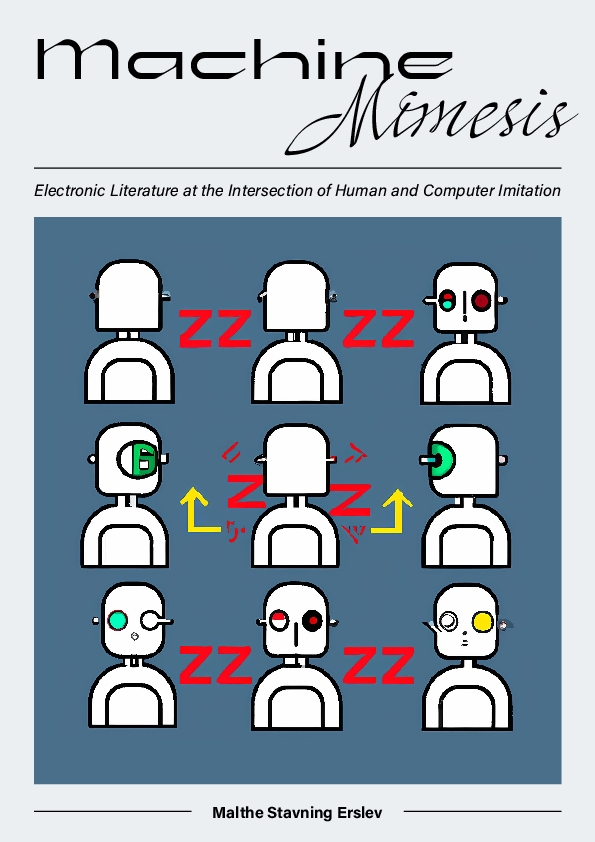Ph.d. Defence - MSc Malthe Stavning Erslev: Machine Mimesis – Electronic Literature at the Intersection of Human and Computer Imitation
Oplysninger om arrangementet
Tidspunkt
Sted
Søauditorierne, Bartholins Allé 3, 8000 Aarhus C, 1252-204 Edouard Biermann auditorium

Assessment Committee
- Associate professor Christian Ulrik Andersen, Digital Design and Information Studies, Aarhus University (chair)
- Professor Olga Goriunova, Department of Media Arts, Royal Holloway University of London
- Professor Scott Rettberg, Director Center for Digital Narrative, Department of Linguistic, Literary and Aesthetic Studies, University of Bergen
Supervisors
- Associate professor Søren Pold, Department of Digital Design and Information Studies (Information Science), Aarhus University
- Associate professor Winnie Soon, School of Communication and Culture, Department of Digital Design and Information Studies (Information Science), Aarhus University
The dissertation will be available for reading in a digital version before the defence following a statement from the borrower promising to delete the file afterwards. If you wish to read the dissertation please contact Malthe Stavning Erslev stavning@cc.au.dk.
The defence is scheduled for three hours and is open to the public. All are welcome.
Abstract.
Generative AI systems, such as OpenAI’s chatGPT and Google’s Bard, possess an unprecedented capability to imitate human writing. They generate poems, song lyrics, and stories that often emulate the styles of well-known authors and are generally recognizable as being of a literary kind. Their advent and rapid implementation seems to usher in a new situation, where questions of computational creativity, artificial intelligence, and the very concept of humanity become increasingly crucial. In this situation, however, one question often goes unnoticed and unanswered: what does it even mean that a computer imitates human writing? What does this imitation do, what does it infer?
The research project Machine Mimesis explores the dynamics of imitation in the context of machine learning, with a focus on the intersection of human and computational imitation. To that end, the project anchors the notion of imitation in the concept of mimesis, which has roots in Ancient Greek philosophy and still today plays a central role in our conceptions of similarity, representation, and imitation. This ancient concept is paired with state-of-the-art technology and injected into contemporary discussions from fields such as electronic literature, software studies, computational creativity, literary posthumanism, and human-computer interaction, while drawing on a rejuvenating consideration of critical and philosophical classics from the twentieth century in this new machine-mimetic light. All this in combination with a practice-based approach.
Machine Mimesis examines playful and literary – and reciprocate – practices of imperfect, messy imitation across humans and computers that challenge the drive towards indistinguishability in machine learning. By promoting difference, critique, and reflection, Machine Mimesis offers an alternative to unilateral assimilation in Generative AI, allowing us to engage more creatively with this technology and influence its role in digital culture.
